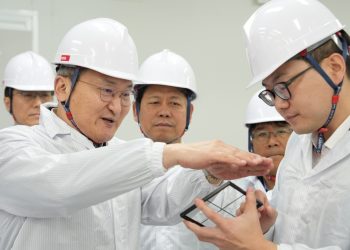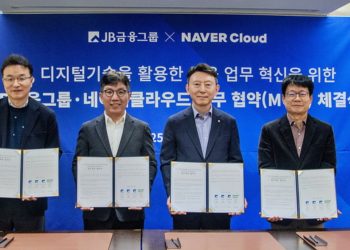LG Uplus Corp., South Korea’s third-largest cellular service provider, developed and established a shipyard crane control system at Busan Port. the service provider set up the ultrafast, 5G-based seaport infrastructure in partnership with Busan Port Authority (BPA), operator of South Korea’s leading seaport. According to LG Uplus, 5G technology is necessary to establish intelligent, automated ports and increase their efficiency.
Laying The Foundations for 5G Smart Ports
Currently, the Busan Port container terminal experiences issues in its logistics flow due to massive cargo volumes and packed schedules. To solve these concerns, LG Uplus introduced a remote-controlled crane infrastructure linked to the terminal operating system. Busan Port is also the first port in South Korea to set up a 5G network and applied its capabilities to port operations, including loading and unloading equipment.
Moreover, LG Uplus’s 5G-based automated seaport solution, equipped with high-definition cameras and laser sensors, enables operators to control the shipyard cranes in real-time from the control room. LG Uplus’s automated crane control system also delivers live video feed to operators, minimizing latency to outstandingly low levels. Additionally, the control system reduces video transmission time to 84%.
Besides delivering innovative solutions, including location recognition, automatic steering and landing, and more, the seaport infrastructure also boosts work productivity. Before LG Uplus introduced the crane solution, operators had to maneuver containers from cockpits situated around 25 meters aboveground. Previously, four to five workers also needed to team up to operate a single shipyard crane. Manual control cranes also produce low operational efficiency and increase accident risks.
Thanks to LG Uplus’s development, a single operator could control up to four crane units, enhancing worker operational efficiency. In addition to improving seaport productivity, the automated crane solution also created a better work environment with reduced safety hazards. LG Uplus expects the seaport infrastructure to increase productivity by over 40% due to the added convenience and safety.
Optimizing 5G Technology’s Applicability
“We will do our best with our business partners to successfully deploy LG Uplus’s 5G technology in domestic ports, including Busan,” said Seo Jae-Yong, Head of LG Uplus’s Smart Infrastructure Business Unit. Seo also said that LG Uplus would strengthen its competitiveness in the fast-growing 5G business-to-business market.
LG Uplus also plans to commercialize the shipyard infrastructure this year, expanding the tech to more ports across the country. Furthermore, the telecom company aims to launch more 5G-based solutions, including uncrewed container-carrier trucks and autonomous cargo-monitoring drones and forklifts. Recently, the company developed and launched the 5G self-driving air quality-monitoring robot that generates atmospheric analysis in real-time.
Since 2019, LG Uplus has worked to ensure seaport competitiveness through 5G technologies, accumulating experience and know-how in port logistics. In particular, the company spent around 4 billion won ($3.6 million) on developing semi-autonomous cranes, which are still undergoing tests.







